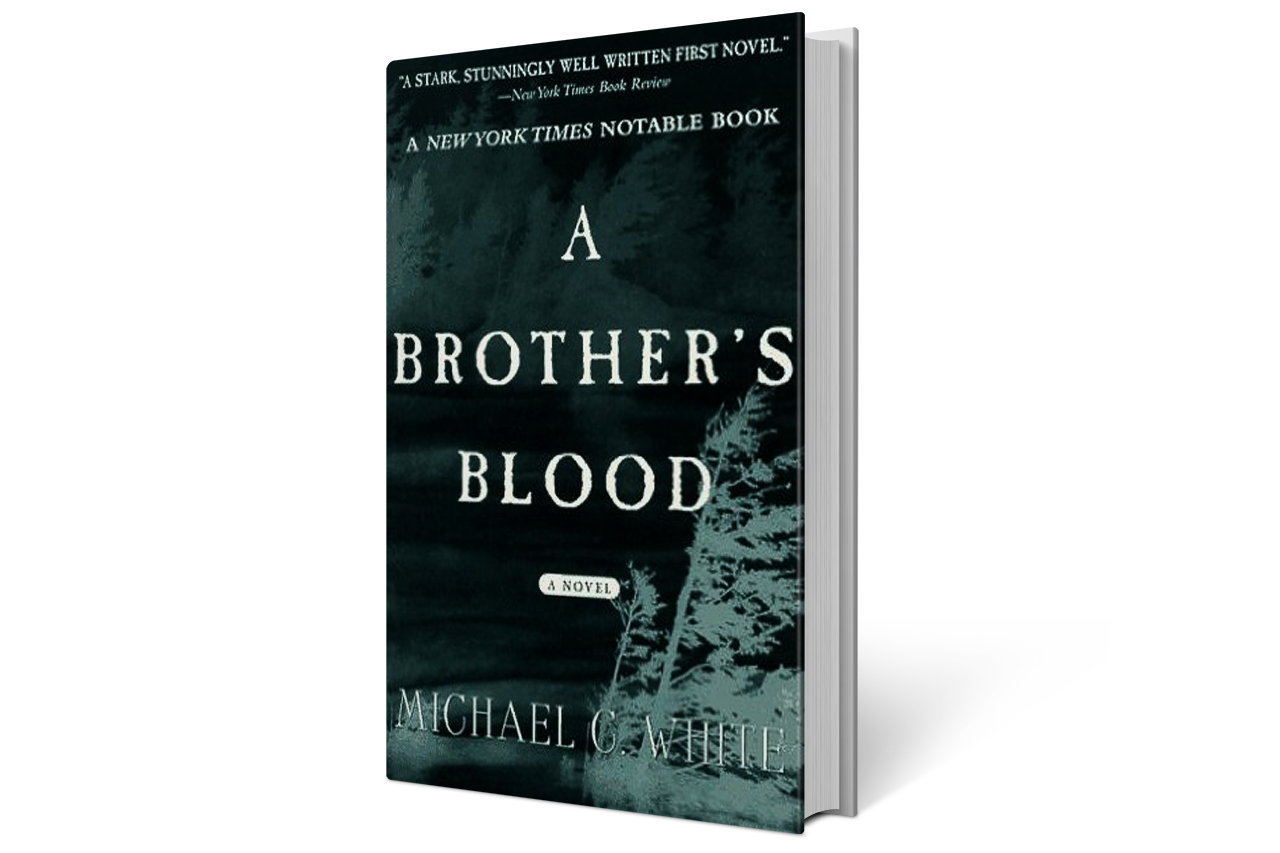
A Brothers Blood
This novel is set in a small Maine village, where in 1945 German prisoners worked in a logging camp. When the brother of an ex-prisoner turns up seeking information on the murder of his brother after he escaped from the camp, it rouses old and disturbing memories for Libby Pelletier, the narrator. Though Libby is reluctant to remember what she knows, much less talk about it, she finds it inevitable when violence returns and her brother is killed. The link between the murders is the mystery that drives this story of passion, cruelty, and ignorance.
“Remarkably controlled for a first novel, this literary thriller from a Pushcart nominee for short fiction tells of a malignant secret that comes back to haunt the denizens of a backwoods Maine logging community that was once the site of a WWII labor camp for German POWs . . . Shuttling deftly between past and present, driven by undercurrents of latent energy, this novel marks White as a talented and energetic writer.”
Publisher’s Weekly
“In brilliantly understated prose, White captures perfectly the insularity and claustrophobia of a small New England town, the gruff eccentricity of its inhabitants, the brusque pride of a lonely spinster, and the moral tragedy of war. This dazzling first novel deserves a place in all collections.”
Booklist
Discussion Questions for A Brother’s Blood
1. In the novel, Libby is at first reluctant to question the past. Why is she reluctant? What begins her transformation?
2. Libby is not a typical symbol of femininity. Her mother said that with her looks she would have to try harder to get a man. Several people have made fun of her cleft lip, yet she has no lack of male suitors. Discuss Libby as a feminine symbol.
3. Libby has always protected her brother Leon. And yet in part because of him, she was never able to have a life, a husband, and a family. What does Leon represent to Libby?
4. Ambrose is a complex character. A drunkard, he is gruff and distant from his family, yet by the end of the novel, we see him in different terms. Why?
5. The setting of this novel can almost be looked upon as another character. How does the bleak Maine landscape contribute to the tension of the book?
6. Libby was abandoned by her mother at a young age. How does this affect her? Does she ultimately resolve her conflict about being left alone?
7. The title comes from Genesis: The voice of thy brother’s blood crieth unto me from the ground. Discuss as many possible implications of this as they appear in the novel.
8. Did the horror of the Holocaust and the atrocities on the German side diminish the concern of the local citizens about the death of a German?
9. Why did the author choose to tell the story from a female point of view?
